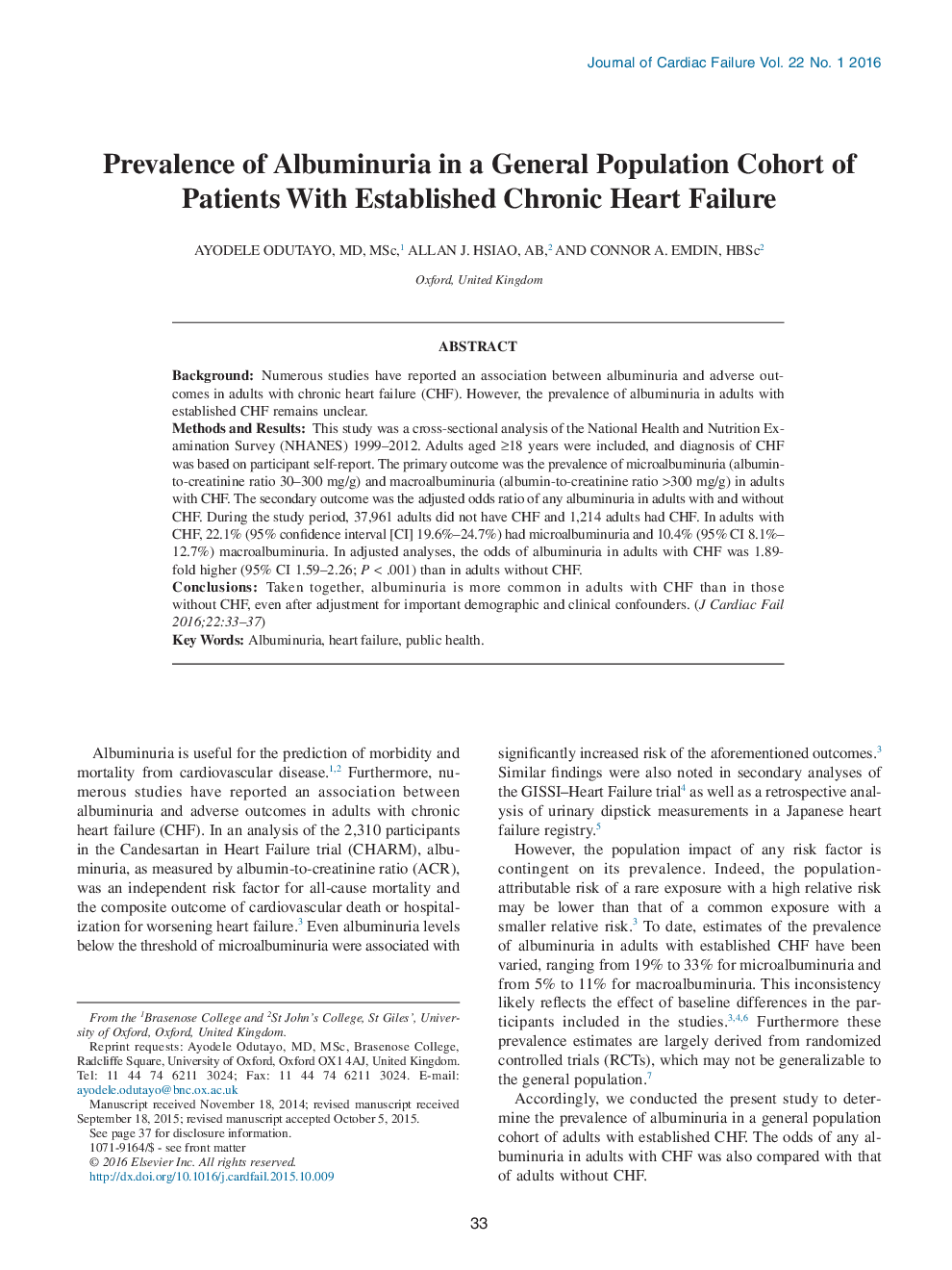| Article ID | Journal | Published Year | Pages | File Type |
|---|---|---|---|---|
| 2958753 | Journal of Cardiac Failure | 2016 | 5 Pages |
•The prevalence of albuminuria in adults with established CHF remains unclear.•Among adults with CHF, 22.1% and 10.4% had micro- and macroalbuminuria, respectively•Adults with CHF had higher odds of albuminuria (odds ratio 1.89, 95% CI 1.59–2.26).
BackgroundNumerous studies have reported an association between albuminuria and adverse outcomes in adults with chronic heart failure (CHF). However, the prevalence of albuminuria in adults with established CHF remains unclear.Methods and ResultsThis study was a cross-sectional analysis of the National Health and Nutrition Examination Survey (NHANES) 1999–2012. Adults aged ≥18 years were included, and diagnosis of CHF was based on participant self-report. The primary outcome was the prevalence of microalbuminuria (albumin-to-creatinine ratio 30–300 mg/g) and macroalbuminuria (albumin-to-creatinine ratio >300 mg/g) in adults with CHF. The secondary outcome was the adjusted odds ratio of any albuminuria in adults with and without CHF. During the study period, 37,961 adults did not have CHF and 1,214 adults had CHF. In adults with CHF, 22.1% (95% confidence interval [CI] 19.6%–24.7%) had microalbuminuria and 10.4% (95% CI 8.1%–12.7%) macroalbuminuria. In adjusted analyses, the odds of albuminuria in adults with CHF was 1.89-fold higher (95% CI 1.59–2.26; P < .001) than in adults without CHF.ConclusionsTaken together, albuminuria is more common in adults with CHF than in those without CHF, even after adjustment for important demographic and clinical confounders.
